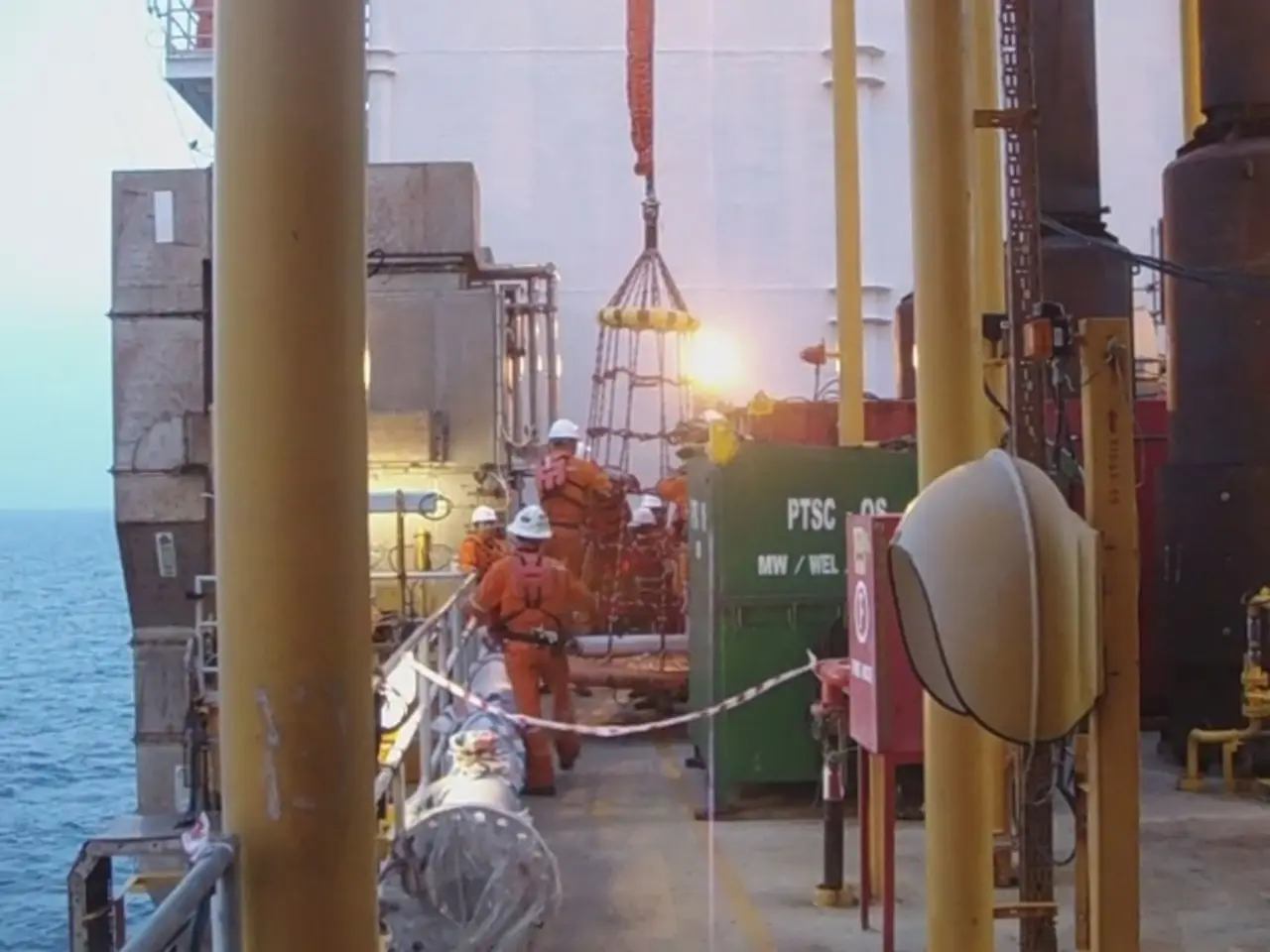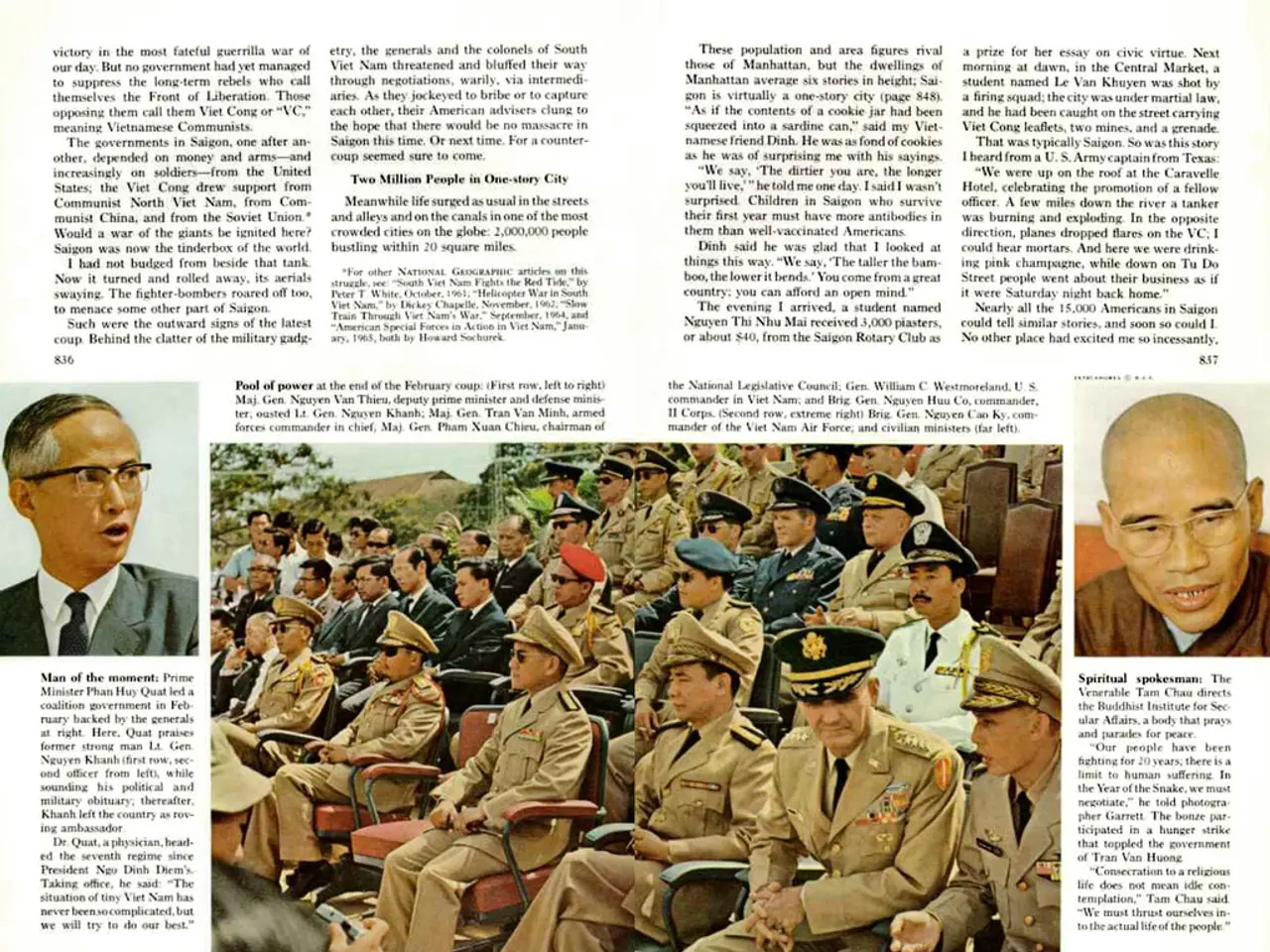U.S. President Trump hikes tariffs on imported oil from India, sourced from Russia, to a 50% rate.
The United States has imposed additional tariffs on India and Switzerland, escalating trade sanctions in response to their continued importation of Russian oil. This strategic move aims to cut off funding to Russia amid its aggression in Ukraine.
Starting from August 12, a 39% tariff will be imposed on Swiss products if no progress is made in negotiations. This is a significant increase from the initial 31% tariff, which was lowered to 10% during a three-month negotiation period.
India, the world's third-largest crude importer, has seen a significant increase in its Russian oil imports. As a result, President Donald Trump signed an executive order to impose additional 25% tariffs on India, effective within 21 days, i.e., on August 27. This action increases the total tariff on goods imported from India to 50%.
The Indian government has termed these new tariffs as "unjustified, unreasonable, and extremely unfortunate." However, the U.S. government justifies the tariffs under the International Economic Emergency Powers Act (IEEPA) and related national security laws.
The U.S. has reaffirmed its commitment to strengthening bilateral cooperation in defense with Switzerland. At the same time, the Department of State announced that Swiss President Karin Keller-Sutter met with U.S. Secretary of State Marco Rubio in Washington to negotiate a trade agreement.
Switzerland mainly exports pharmaceutical and chemical products, luxury watches, precision instruments, and high-tech medical equipment to the United States. The Brazilian government has filed a request for consultations with the United States before the World Trade Organization (WTO) regarding the tariffs imposed.
Meanwhile, Brazil faces a 50% tariff on various products, including beef and coffee, due to the tariffs imposed by Washington. The Brazilian Finance Minister Fernando Haddad plans to speak with U.S. Treasury Secretary Scott Bessent next Wednesday.
The U.S. has also threatened the European Union with a 35% tariff on European products if it does not fulfill its part of a trade agreement. This move reflects the continuation and intensification of U.S. sanctions policy against Russia, despite diplomatic complexities with key partners such as India and the European Union.
The tariff action builds upon earlier U.S. sanctions and executive orders originating under the Biden administration that targeted Russian energy imports. This aggressive tariff escalation came after weeks of unsuccessful trade deal negotiations between the U.S. and India and is aimed at pressuring India economically to stop supporting Russia by purchasing its oil, thereby weakening Russia’s financial resources used in its conflict with Ukraine.
The U.S. government is also monitoring other countries for potential Russian oil imports and may impose similar tariffs on them, signaling an escalation of economic measures against Russia’s global energy export network. The implications of these tariffs include increased costs for Indian and Swiss exporters shipping to the U.S., potentially straining U.S.-India and U.S.-Switzerland trade relations.
- The average tariff imposed by the U.S. on goods imported from India and Switzerland has significantly increased, with India facing a total of 50% and Switzerland potentially rising to 39% due to ongoing policy-and-legislation negotiations.
- In the realm of general-news, the escalating U.S. tariffs on Russia's allies like India and Switzerland, due to their importation of Russian oil, is a strategic move aimed at weakening Russia's financial resources in its conflict with Ukraine and potentially straining international trade relations.








